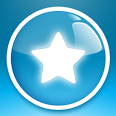
When I initially looked at the list, I figured that I had not heard of those programs or products. However, I actually use two of them. I like Google Calendar because of the holidays I add it to my Outlook calendar to have business and holidays in the same place. I use Pandora almost daily. The products that would probably be of most benefit to me would be the to-do lists. I like to write things down to keep track of appointments and other things I need to do. I usually use the calendar and tasks apps in my iPhone for these things. Vital!st seems like a good option though.

The articles presented a compelling case for the use of iPods and podcasting in education. The articles we read were related to podcasts in higher education but I have heard of elementary students completing assignments involving iPods and creating their own podcasts (with assistance, of course).
I think podcasts would be a great supplemental piece to course resources. I could see it's potential for supplanting face to face classes. I'm sure students would rather listen to a podcast at their convenience or leisure than attend class any day. I think that there is definite value in the face to face interaction that comes along with attending class with the added benefit of being able to hear or see the information again later on.
I used to have an iPod and I used it entirely for music. Until this course, I never really thought about podcasting as a method of communication. It was never truly applicable to anything I was involved in. I do see the possibilities for use in coaching though. I could envision short clips of basketball moves or new plays for players to study whenever and wherever they want. I think that is something that players would really like.
More-so than being surprised that I used a lot of the technologies for learning, I was quite surprised at how many of them I use on a regular basis. I use 30 of them pretty frequently. Some, such as my iPad, iPhone, and Moodle are used almost daily; while I've added others such as Twitter, Facebook, and Outlook for work and school.

While I believe that the ability to stay connected is convenient and beneficial in education as far as research and sharing ideas, I think it has drawbacks as well. The article made many good points. Particularly, I agree that the instant gratification and shield that the web provides promotes less person to person interaction and is rewiring brains the brains of young people. It seems that it is decreasing or removing the need for people to think critically or deeply. I think the pros and cons of being "always on" are just about 50/50.

I selected Pearltrees. I chose this one because it allows for more flexibility to follow the topics you like and add more that might be connected while keeping it all organized. I chose to follow basketball and so far I have added NCAA Men's basketball as well as the NBA.